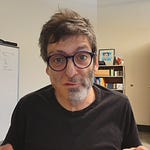The world is undeniably complex and filled with numerous painful moments. During my time in hospital, I developed a strategy to cope with the immense pain I experienced. Some of it was incredibly acute. For instance, there was a moment when my right hand, swollen and lacking blood supply, had to be cut open on both sides and on every finger. The pain was so intense that it consumed my attention.
There’s extreme pain that demands all your focus, and then there’s regular pain, which is still very painful but not as overwhelming. Over time, I developed a process for dealing with these pains by experiencing the pain fully while also observing it from an outside perspective. I would describe the pain—was it sharp or throbbing? Did it change with my breathing? This dual approach of experiencing and observing helped me feel more in control and less overwhelmed by the pain.
This strategy became second nature to me. Instead of just focusing on when the pain would stop, I asked myself what I could learn from it. Recently, I've noticed that I apply this same approach to other tough situations—whether it's dealing with COVID-19, its deniers, academia challenges, war, or antisemitism. These are all incredibly painful and complex issues.
When faced with such difficulties, I find myself feeling the pain and helplessness but also maintaining a level of curiosity. What can I learn from this? What nuances am I noticing? This duality has been instrumental in helping me cope.
Perhaps this approach influenced my career as a social scientist or vice versa. Regardless, this method has been incredibly helpful for me. I'm sharing this in the hope that it might help others, too. When focusing on the downside and on pain, maybe there’s a way to also find interest and learning in it. Are we learning something about human nature, ourselves, society, social media, or government?
Let me know if you think this approach could help you as well. Maybe you're already doing it. Wishing all of us better times ahead.













